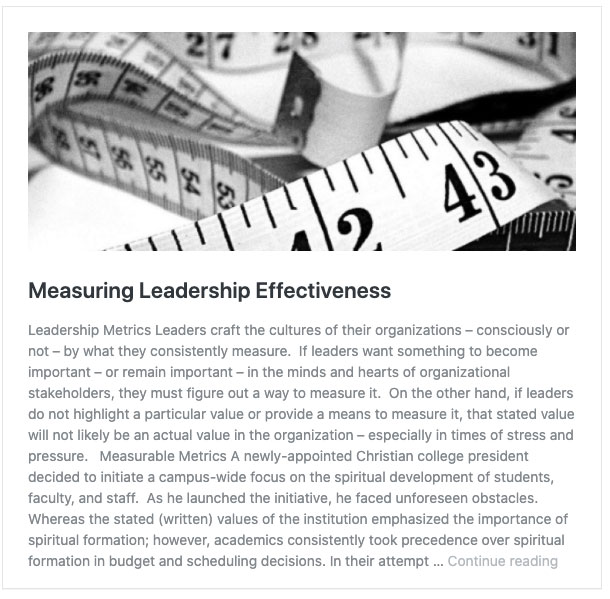Democritus, the ancient Greek philosopher best remembered for his atomic theory of the universe, once said, “Do not trust all men, but trust men of worth; the former course is silly, the latter a mark of prudence.”
Prudence has been an essential leadership virtue historically, but the word has largely fallen out of use. Prudence was considered one of the greatest of virtues two thousand years ago. A hundred years ago it was part of moral philosophy, and today it is the punchline of a joke. For people of a certain generation it will forever conjure up the memory of Dana Carvey impersonating George H. W. Bush saying, “Wouldn’t be wise; wouldn’t be prudent.”
Prudence comes from the Latin term meaning insight, foresight, and wisdom. It is the ability to judge between worthy and questionable actions, and it also has a practical component. Aristotle referred to prudence as “practical wisdom, practical judgment.”
Prudence is a Leadership Term.
It is often demonstrated in the midst of chaos, confusion, and crisis, by the leader’s ability to make a way through murky waters to the right end.
Prudence is often equated with caution, but there is a difference between the two. For instance, caution is an excellent strategy when crossing a minefield, and a disastrous one during a gold rush. Prudence, on the other hand, is always a good strategy.
Prudence is also not the same thing as avoiding mistakes. Many leaders are afraid to make mistakes, thus ensuring that their organizations will never move forward. Moreover, their own souls will shrivel from fear and avoidance. Neither is prudence hesitation or procrastination. It is not driving in the middle of the road. Prudence takes the appropriate action at the appropriate time.
Prudence is the ability to size up a situation and make decisions based on subtle clues. The prudent leader is intuitive, discreet, and able to pick up clues that reveal what his or her followers really need. In His encounter with the Samaritan woman, Jesus could see that although she had come to draw water from the well, her real need was living water for her thirsty soul. He offered it to her, changing her life forever (John 4:4–15). The prudent leader is also able to detect ulterior motives behind a mask of goodness. Jesus displayed this quality when He refused to answer the Pharisees regarding the authority behind His miracles (Matt 21:23–27).
Prudent leaders don’t give themselves to everything and everybody.
To illustrate, Jesus was prudent in His relationships, with His time, and ultimately with His very life. Most religious leaders would probably sign up the person who rushes into their office asking, “What must I do to inherit eternal life?” But Jesus looked at the rich young man, loved him, and said, “You lack one thing” (mark 10:17-22). Most leaders enjoy it when people compliment them, but at the Passover Feast, where many “believed in his name,” Jesus “did not entrust himself to them, because he knew…what was in man” (John 2:23-25)
Prudence is a recoverable art, and is essential for effective leadership.


Leave a Reply